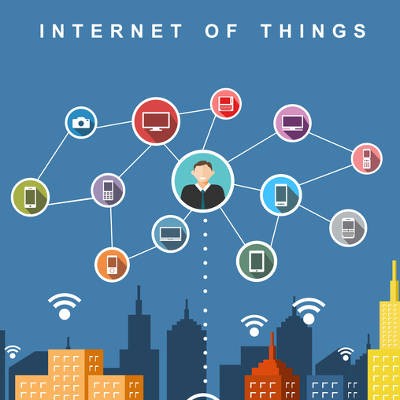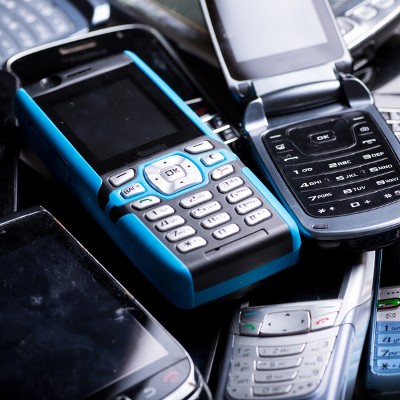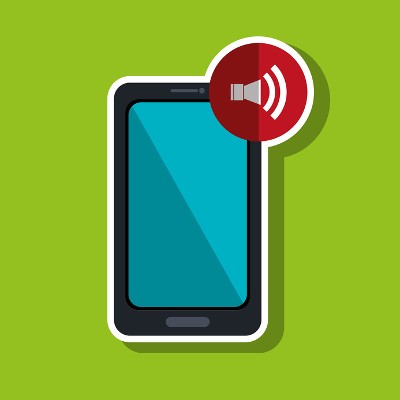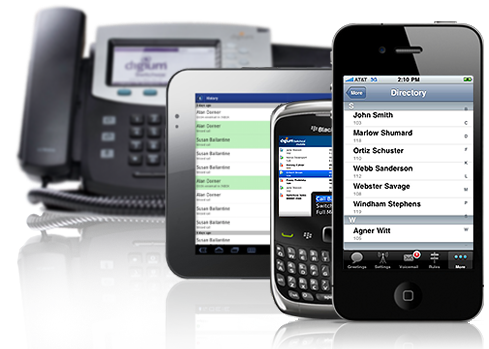Ferrum Technology Services Blog
There are a lot of connected devices nowadays, but not all of them have a very practical purpose. Some of the more practical uses of connected technology range from security systems to thermostats, but other technologies can’t necessarily be justified so easily. Why would a blender need to connect to the Internet? There are many more that are being added every day, which is why a lot of companies are concerned about this rise in connected technology.
Unless you’re the trade-in or hand-me-down kind of person, it’s likely that you have a supply of old Android devices squirrelled away somewhere. You know, just in case the one who have now breaks. However, these old devices can be useful in other ways around the office. For this week’s tip, we’ll go over three alternate uses for your mobile device in the office.
While mobile devices like smartphones and laptops have allowed modern employees to keep up with their workload and improve flexibility, they are also a significant threat to your organization’s data. Therefore, you need to consider how these mobile devices will affect your business’s IT strategy. Even if you haven’t, it’s likely that someone in your organization has considered it.
Your cell phone rings while you’re in the middle of a meeting. Do you answer it? Regardless of if you do or not, the fact remains that it’s embarrassing and that it shouldn’t be happening in the first place. Thankfully, for Android users, you can turn your phone’s volume up or down by scheduling it.
Every business has hardware, like workstations, servers, and other devices, that are critical to its operational efficiency. However, managing your hardware can be tricky, especially if you’re a small or medium-sized business that has limited time and resources. If your business doesn’t have a process put in to place to handle hardware inventory and deployment, perhaps it’s time that you consider implementing one.
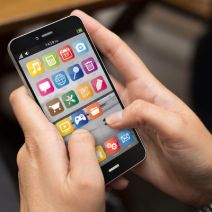 Today, more than two billion people use a smartphone. By 2020, experts predict that the smartphone market will reach over 70 percent of the planet’s population. In fact, more people own a smartphone today than have ever owned a PC, and more actual computing is done today using smartphone technology than using any other method! Driving this mobile revolution is the fact that smartphones have become affordable and present consumers with a wide array of computing options.
Today, more than two billion people use a smartphone. By 2020, experts predict that the smartphone market will reach over 70 percent of the planet’s population. In fact, more people own a smartphone today than have ever owned a PC, and more actual computing is done today using smartphone technology than using any other method! Driving this mobile revolution is the fact that smartphones have become affordable and present consumers with a wide array of computing options.
 Technology has changed the world. It has changed individual lives, businesses, and the way people communicate with one another. The main reason for this is that technology, and the use of it, happens everywhere. In fact, the world has seen a huge spike in the addition of microprocessors to ordinary objects which allows them to communicate with the digital world. This trend is known as ubiquitous computing.
Technology has changed the world. It has changed individual lives, businesses, and the way people communicate with one another. The main reason for this is that technology, and the use of it, happens everywhere. In fact, the world has seen a huge spike in the addition of microprocessors to ordinary objects which allows them to communicate with the digital world. This trend is known as ubiquitous computing.
 Most people rely heavily on their smartphones. If you’ve been out in public recently, you know the behavior we’re talking about. Some people constantly have their noses in their phone. Many sources are beginning to see this as a major cultural problem, but is this because there has been no dedicated strategy to move smartphone users from constant entertainment and current events consumption? Ironically, to move society forward using these “essential” information delivery systems, we may just need more technology, not less.
Most people rely heavily on their smartphones. If you’ve been out in public recently, you know the behavior we’re talking about. Some people constantly have their noses in their phone. Many sources are beginning to see this as a major cultural problem, but is this because there has been no dedicated strategy to move smartphone users from constant entertainment and current events consumption? Ironically, to move society forward using these “essential” information delivery systems, we may just need more technology, not less.
 Mobile technology has changed the way that the business world operates. No longer do employees have to be tethered to their desks in order to remain productive at all times. Instead, they can work while on the road or from their home office. However, if your business’s mobile device management solution is too lax, it might encounter a number of different problems that could potentially ruin the mobile experience for your business.
Mobile technology has changed the way that the business world operates. No longer do employees have to be tethered to their desks in order to remain productive at all times. Instead, they can work while on the road or from their home office. However, if your business’s mobile device management solution is too lax, it might encounter a number of different problems that could potentially ruin the mobile experience for your business.
 Your mobile phone is meant to be an extension of productivity while you’re out of the office, but some people can’t resist the urge to mess around with the numerous entertainment applications right in front of them. Unfortunately, nowhere is this more true than in the office. What’s that? Your employees don’t waste time with mobile devices? Withhold judgment until you see the statistics. Your people might be wasting more time than you think.
Your mobile phone is meant to be an extension of productivity while you’re out of the office, but some people can’t resist the urge to mess around with the numerous entertainment applications right in front of them. Unfortunately, nowhere is this more true than in the office. What’s that? Your employees don’t waste time with mobile devices? Withhold judgment until you see the statistics. Your people might be wasting more time than you think.
 We all need a little magic in our lives now and again. For some, this means card tricks, or optical illusions that are designed to trick the eye into seeing something that isn’t there. For German magician Simon Pierro, dubbed the “Wizard of iOS,” it means taking a piece of consumer technology and turning it into a catalyst for his magic acts.
We all need a little magic in our lives now and again. For some, this means card tricks, or optical illusions that are designed to trick the eye into seeing something that isn’t there. For German magician Simon Pierro, dubbed the “Wizard of iOS,” it means taking a piece of consumer technology and turning it into a catalyst for his magic acts.
 If you’re a heavy tech user, then eventually, your photos, apps, and videos will take up all the space on your mobile device’s hard drive, making it impossible to add anything new. Plus, Murphy’s Law states that this will happen at the worst possible time, like while you’re recording your kid’s recital. Follow these four tips and don’t get stuck with a lack of space.
If you’re a heavy tech user, then eventually, your photos, apps, and videos will take up all the space on your mobile device’s hard drive, making it impossible to add anything new. Plus, Murphy’s Law states that this will happen at the worst possible time, like while you’re recording your kid’s recital. Follow these four tips and don’t get stuck with a lack of space.
 Of all the computer company rivalries going on, one of the largest and most well known is Apple vs. Microsoft. The storied competition between these two software giants has driven innovation forward for more than thirty years. Today, the frontlines of this battle take place between the two company's mobile divisions, and now there's a third major competitor in the mix.
Of all the computer company rivalries going on, one of the largest and most well known is Apple vs. Microsoft. The storied competition between these two software giants has driven innovation forward for more than thirty years. Today, the frontlines of this battle take place between the two company's mobile divisions, and now there's a third major competitor in the mix.
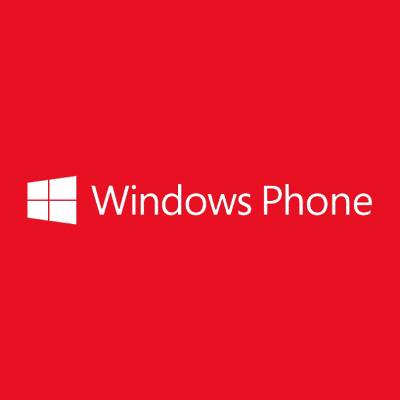 Smartphones that have been running Microsoft's Windows Phone 8 mobile operating system have been manufactured for over a year and a half, and in that time, Android has wrestled the title of "most popular mobile OS" away from Apple's iOS. Windows Phone 8 devices currently sit third, making up just over 3% of all the world's mobile phones. Despite its place in the market, the world's largest software company will release the first major update to their Windows 8 Phone platform in the upcoming months, and early users are saying they're really hitting the mark.
Smartphones that have been running Microsoft's Windows Phone 8 mobile operating system have been manufactured for over a year and a half, and in that time, Android has wrestled the title of "most popular mobile OS" away from Apple's iOS. Windows Phone 8 devices currently sit third, making up just over 3% of all the world's mobile phones. Despite its place in the market, the world's largest software company will release the first major update to their Windows 8 Phone platform in the upcoming months, and early users are saying they're really hitting the mark.
 Awareness to business trends are important for any business owner. The savviest businessman finds a way to use the trending topics to improve their enterprise's operational efficiency. The trends of the past for small business computing seem to be focused on the establishment and practical use of technologies that are relatively new, but are in full practice in the business world. These technologies include the manufacturing and worldwide distribution of devices that enhance a user's connectivity by presenting powerful interfaces to take advantage of their incredible mobility.
Awareness to business trends are important for any business owner. The savviest businessman finds a way to use the trending topics to improve their enterprise's operational efficiency. The trends of the past for small business computing seem to be focused on the establishment and practical use of technologies that are relatively new, but are in full practice in the business world. These technologies include the manufacturing and worldwide distribution of devices that enhance a user's connectivity by presenting powerful interfaces to take advantage of their incredible mobility.
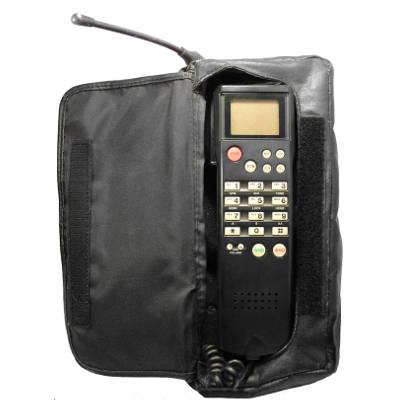 Can you remember a world without cell phones? The thought of such a thing nowadays makes teenagers shudder in fear at the notion of face-to-face communication with other humans! Once upon a time in the 1980s, cell phones entered the market and changed everything. Here's a television ad that describes the selling points of cellular radio telephones.
Can you remember a world without cell phones? The thought of such a thing nowadays makes teenagers shudder in fear at the notion of face-to-face communication with other humans! Once upon a time in the 1980s, cell phones entered the market and changed everything. Here's a television ad that describes the selling points of cellular radio telephones.
 Is it a myth? Is it really best to wait for your mobile devices' batteries to fully deplete before you recharge them? This sagely advice has been floating around for years, but is it true or just hearsay? Battery technology has recently made some great advancements, ushering in a new-school of mobile battery maintenance practice.
Is it a myth? Is it really best to wait for your mobile devices' batteries to fully deplete before you recharge them? This sagely advice has been floating around for years, but is it true or just hearsay? Battery technology has recently made some great advancements, ushering in a new-school of mobile battery maintenance practice.

